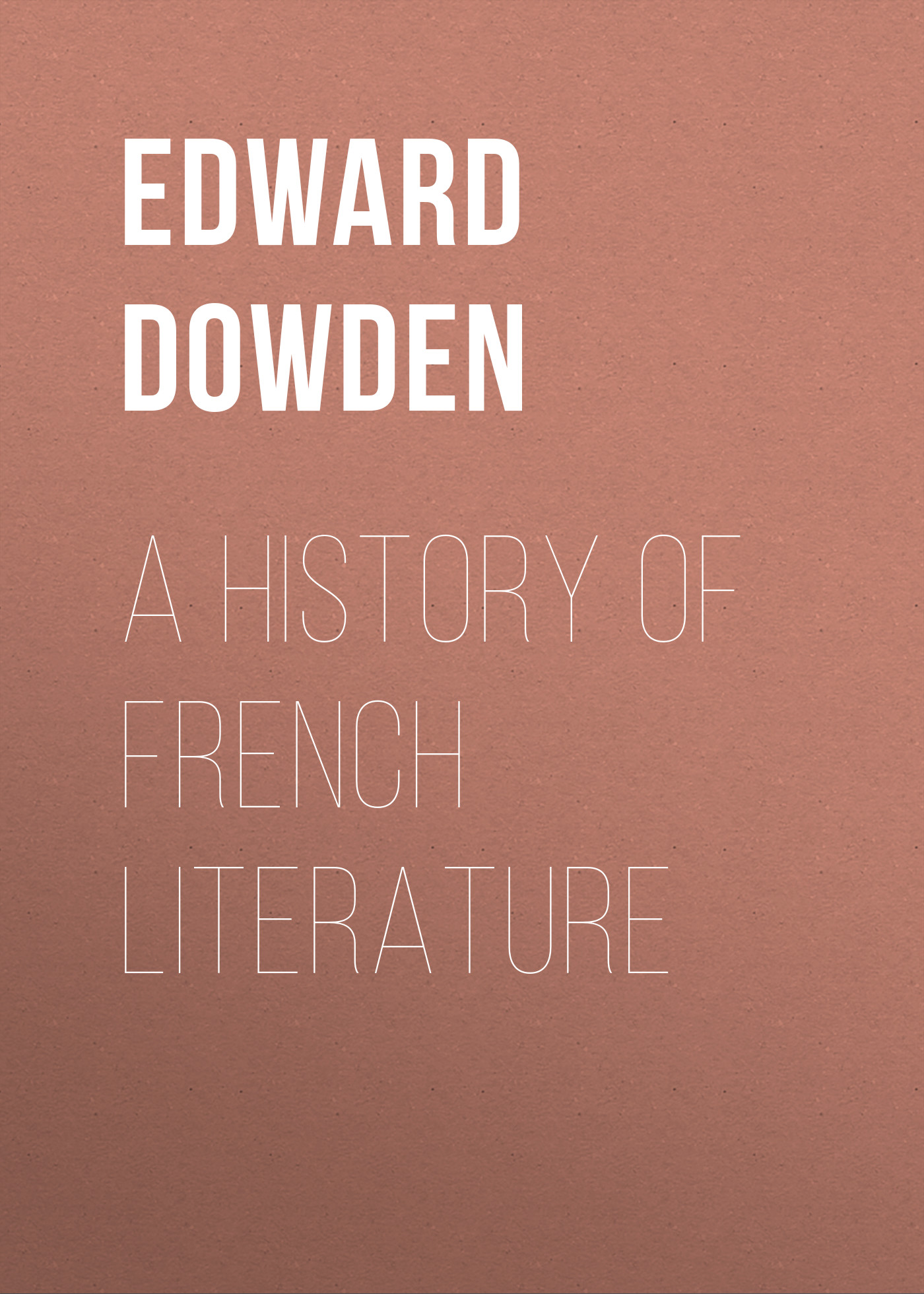Электронная книга: Edward Dowden «A History of French Literature»

|
Издательство: "Public Domain"
электронная книга Скачать бесплатно на Litres |
Другие книги автора:
| Книга | Описание | Год | Цена | Тип книги |
|---|---|---|---|---|
| Introduction To Shakespeare | Книга представляет собой репринтное издание 1895 года (издательство "New York, C. Scribner" ). Несмотря на то, что была… — Книга по Требованию, - Подробнее... | бумажная книга | ||
| The Life Of Percy Bysshe Shelley | Книга представляет собой репринтное издание. Несмотря на то, что была проведена серьезная работа по… — Книга по Требованию, - Подробнее... | бумажная книга | ||
| Robert Browning | — Public Domain, электронная книга Подробнее... | электронная книга | ||
| Poems | — Public Domain, электронная книга Подробнее... | электронная книга |
Edward Dowden
Edward Dowden (
He was the son of John Wheeler Dowden, a merchant and landowner, and was born at Cork, three years after his brother John, who became
Dowden's first book, "Shakespeare, his Mind and Art" (1875), resulted from a revision of a course of lectures, and made him widely known as a critic: translations appeared in German and Russian; his "Poems" (1876) went into a second edition. His "Shakespeare Primer" (1877) was translated into Italian and German. In 1878 the Royal Irish Academy awarded him the Cunningham gold medal "for his literary writings, especially in the field of Shakespearian criticism."
Later works by him in this field included: "Shakespeare's Sonnets" (1881), "Passionate Pilgrim" (1883), "Introduction to Shakespeare" (1893), "Hamlet" (1899), "
Other books by him which indicate his interests in literature include:
In 1889 he became the first Taylorian lecturer at the
His wide interests and scholarly methods made his influence on criticism both sound and stimulating, and his own ideals are well described in his essay on "The Interpretation of Literature" in his "Transcripts and Studies". As commissioner of education in Ireland (1896–1901), trustee of the
Dowden married twice, first (1866) Mary Clerke, and secondly (1895) Elizabeth Dickinson West, daughter of the dean of St Patrick's.
External links
*
References
*1911
Suggested Reading:
William M. Murphy. "Prodigal Father: the Life of John Butler Yeats (1839–1922)" (Ithaca and London: Cornell University Press, 1978; paperback edition, 1979; revised paperback edition, Syracuse University Press, 2001.)
William M. Murphy, 'Yeats, Quinn, and Edward Dowden,' in "John Quinn: Selected Irish Writers from His Library," ed. Janis and Richard Londraville (Locust Hill Press, 2001).
Источник: Edward Dowden
См. также в других словарях:
French Literature — • Origin, foundations, and types Catholic Encyclopedia. Kevin Knight. 2006. French Literature French Literature † … Catholic encyclopedia
French literature — Introduction the body of written works in the French language produced within the geographic and political boundaries of France. The French language was one of the five major Romance languages to develop from Vulgar Latin as a result of the … Universalium
French literature of the 17th century — mdash;the so called Grand Siècle mdash;spans the reigns of Henry IV of France, the Regency of Marie de Medici, Louis XIII of France, the Regency of Anne of Austria (and the civil war called the Fronde) and the reign of Louis XIV of France. The… … Wikipedia
French literature of the 18th century — usually refers to the literature written between 1715, the year of the death of King Louis XIV of France, and 1798, the year of the coup d’État of Bonaparte which brought the Consulate to power, concluded the French Revolution, and began the… … Wikipedia
French literature of the 19th century — French literature of the nineteenth century is, for the purpose of this article, literature written in French from (roughly) 1799 to 1900. Many of the developments in French literature in this period parallel changes in the visual arts. For more… … Wikipedia
French literature of the 20th century — French literature of the twentieth century is, for the purpose of this article, literature written in French from (roughly) 1895 to 1990. For literature made after 1990, see the article Contemporary French literature. Many of the developments in… … Wikipedia
